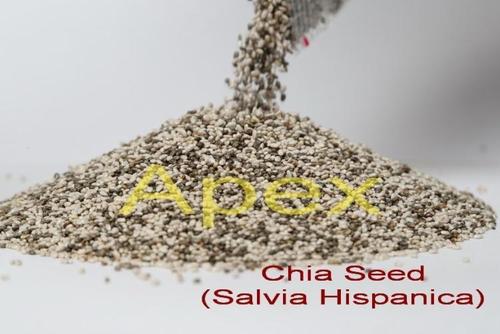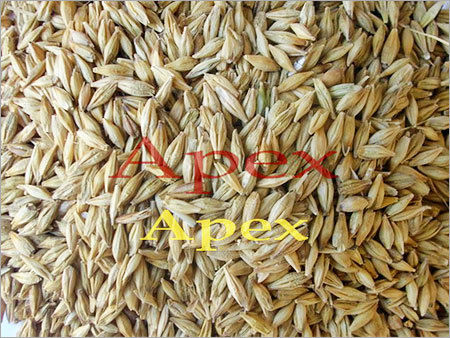Chia Seed
4.00 - 5.00 USD ($)
Product Details:
X
Chia Seed Price And Quantity
- 500
- 4.00 - 5.00 USD ($)
Chia Seed Trade Information
- Mumbai
- Telegraphic Transfer (T/T) Letter of Credit at Sight (Sight L/C) Delivery Point (DP)
- 5000 Per Week
- 21 Days
- Yes
- Free samples available with shipping and taxes paid by the buyer
- Bag
- North America Eastern Europe Middle East Western Europe Central America South America Asia
- ISO,GMP, Halal
Product Description
Chia seeds are tiny, nutrient-dense seeds that come from the plant Salvia hispanica, which is native to Mexico and Guatemala. These seeds have gained popularity in recent years due to their numerous health benefits and versatility in cooking and baking.
Here are some key characteristics and uses of chia seeds:
1. Nutrient-Rich: Chia seeds are packed with nutrients, including fiber, protein, omega-3 fatty acids, antioxidants, vitamins (such as B vitamins), and minerals (like calcium, phosphorus, and magnesium). They are considered a superfood due to their nutritional density.
2. High in Fiber: Chia seeds are an excellent source of dietary fiber, particularly soluble fiber. When mixed with liquids, they can absorb many times their weight in water, forming a gel-like substance. This property makes them useful for thickening recipes and promoting a feeling of fullness.
3. Omega-3 Fatty Acids: Chia seeds are one of the best plant-based sources of alpha-linolenic acid (ALA), a type of omega-3 fatty acid. Omega-3s are important for heart and brain health.
4. Versatile: Chia seeds are incredibly versatile and can be incorporated into a variety of dishes. They can be sprinkled on top of yogurt or oatmeal, added to smoothies, used as a binding agent in baking, or even turned into a pudding-like consistency when mixed with liquid and allowed to sit.
5. Gluten-Free: Chia seeds are naturally gluten-free, making them a suitable addition to gluten-free diets.
6. Hydration: Chia seeds can help with hydration because of their ability to absorb and retain water. Some people use chia seeds in beverages to create a hydrating drink, known as "chia water" or "chia fresca."
7. Plant-Based Protein: Chia seeds contain a fair amount of protein, making them a good addition to vegetarian and vegan diets.
8. Antioxidants: Chia seeds contain antioxidants that can help protect the body from oxidative stress and reduce the risk of chronic diseases.
FAQ:
1. What are chia seeds?
Ans: Chia seeds are small, nutrient-dense seeds derived from the Salvia hispanica plant, native to Mexico and Guatemala. They are known for their high nutritional content, including fiber, protein, omega-3 fatty acids, vitamins, minerals, and antioxidants.
2. How do you eat chia seeds?
Ans: Chia seeds are versatile and can be incorporated into various dishes. You can sprinkle them on yogurt or oatmeal, add them to smoothies, use them as a thickening agent in recipes, make chia pudding by mixing them with liquid, or even include them in baking.
3. What are the health benefits of chia seeds?
Ans: Chia seeds offer several health benefits, including improved digestion due to their high fiber content, heart health support through omega-3 fatty acids, and potential weight management due to their ability to absorb water and promote a feeling of fullness. They are also a good source of essential nutrients like calcium and magnesium.
4. How do you make chia pudding?
Ans: To make chia pudding, combine chia seeds with a liquid of your choice (e.g., almond milk, coconut milk, or regular milk) in a ratio of about 1:4 (1 part chia seeds to 4 parts liquid). Add sweetener and flavorings to taste. Mix well, then refrigerate for a few hours or overnight until it thickens to a pudding-like consistency. Top with fruits, nuts, or spices before serving.
5. Are chia seeds gluten-free?
Ans: Yes, chia seeds are naturally gluten-free, making them a suitable option for those with gluten sensitivity or celiac disease.
6. Can I eat chia seeds raw?
Ans: Yes, you can eat chia seeds raw. They are safe to consume without cooking. However, some people prefer to soak or mix them with liquid before eating to avoid potential digestive discomfort, as chia seeds can absorb water and expand in your stomach.
7. How long do chia seeds last and how should they be stored?
Ans: Chia seeds have a long shelf life, typically lasting for up to two years when stored in a cool, dry place in an airtight container. Refrigeration is not necessary, but it can help extend their freshness.
8. Are there any side effects or precautions to consider when consuming chia seeds?
Ans: Chia seeds are safe for most people when consumed in moderation. However, some individuals may experience digestive discomfort if they consume chia seeds without enough liquid. It's essential to stay hydrated when eating chia seeds to prevent any digestive issues. Additionally, if you have specific medical conditions or allergies, consult with a healthcare provider before adding chia seeds to your diet.
9. Can chia seeds help with weight loss?
Ans: Chia seeds may aid in weight management due to their high fiber content, which can help promote a feeling of fullness and reduce overall calorie intake. However, they are not a magical solution for weight loss and should be part of a balanced diet and healthy lifestyle.
10. Can I grind chia seeds into a powder?
Ans: Yes, you can grind chia seeds into a powder using a blender or coffee grinder. This ground chia can be added to recipes as a thickening agent or used as an ingredient in various dishes.
Tell us about your requirement

Price:
Quantity
Select Unit
- 50
- 100
- 200
- 250
- 500
- 1000+
Additional detail
Mobile number
Email
Other Products in 'Agro & Food Products' category
"We mainly deliver our products to the foreign countries."
 |
APEX INTERNATIONAL
All Rights Reserved.(Terms of Use) Developed and Managed by Infocom Network Private Limited. |









 Send Inquiry
Send Inquiry Send SMS
Send SMS Call Me Free
Call Me Free
